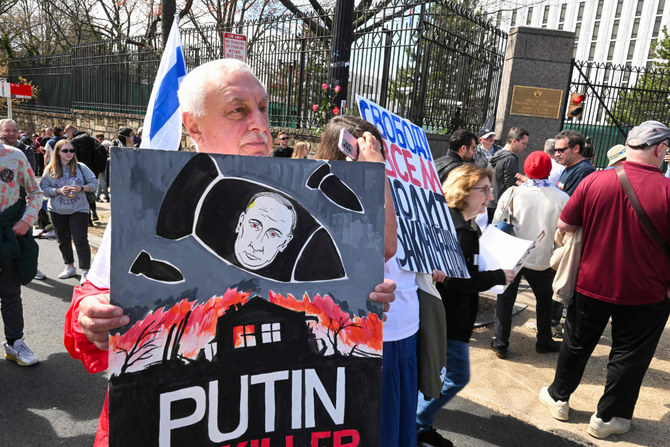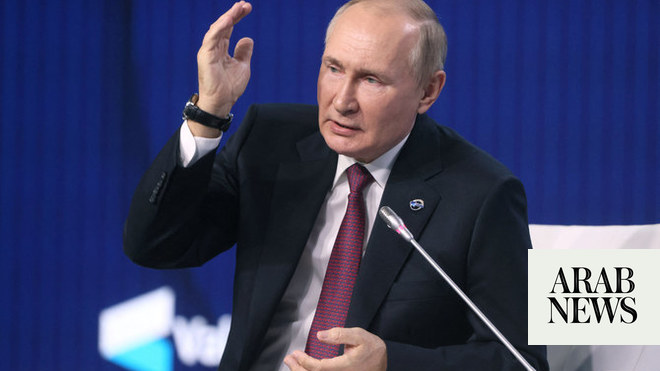
Russian President Vladimir Putins announcement that he would run for a fourth term as president was long predicted, though it seemed to some Russian observers (incorrectly) that he waited unusually long to make it. Less predictable is how the system Putin built will plan its perpetuation after his term ends in 2024, when hes constitutionally barred from running again.
Putins third term has been his most important one, more momentous even than his first, in 2000-2004, which was marked by US Republican-style economic reforms, a flat income tax, the harsh taming of the 1990s oligarchs and the recentralization of power. In 2012-2018, Putin abandoned any pretense of playing along with the US and its European allies and sought to make it clear to the rest of the world that Pax Americana was ending. In that, he has been largely successful. He has, however, neglected the base on which his geopolitical achievements rest -- his own Russia, the vast, still poor, increasingly cynical and potentially very angry nation that Putin may not quite represent, or even run, anymore.
Putin claims his biggest successes outside of Russia. He has held on to illegally annexed Crimea, and the Kremlin retained operational control over the mob-run, separatist "peoples republics" in eastern Ukraine, most recently through what looked like an engineered coup in one of them. Putin was held back from further territorial gains by cost considerations -- it appears important to him to keep regular military casualties low while making proxies shoulder most of the burden -- but his minimum goals, including instability in Ukraine, have been achieved. Its obvious even to the most biased observers that, despite massive Western support, modern Ukraine is a corrupt mess that is hardly more European than when its people decided to break away from the Russian orbit at the beginning of Putins third term.
Despite US resistance, Putin helped ally Assad, win his civil war. At the end of 2017, its clear that if Assad is leaving at all, hes not being toppled, the way the US and its allies toppled Saddam Hussein and Muammar Qaddafi. Putins successful, resource-light intervention has redrawn the Middle Eastern relationship map, helping effectively rip Turkey out of the Western alliance and building good working relationship between Saudi Arabia and Moscow, which was solidified by an oil policy alliance.
Putin has also given hope to illiberal forces throughout Europe, which failed to win critical elections this year but which will remain useful allies. And, deservedly or not, Russia has been established in the Western elites mind as a hacking superpower, a different kind of tech force than the US with its commercial internet behemoths. Its a reputation Putin is looking to strengthen by embracing cryptocurrency technology as an alternative to the Western-dominated financial system.
All of this has cost Russia its place in the G-8 and its vague aspirations to membership in a greater Europe, stretching from Lisbon to Vladivostok. But it hasnt made Russia a pariah to the rest of the world, most notably to China, which has benignly allowed Putin to shake the foundations of the Western-led global order. Putins third term will likely be remembered as the four years that made a multi-polar world if not a reality, then a possibility.
But as Putins skill was applied to geopolitics, he was an increasingly absent feudal lord at home. Gleb Pavlovsky, a Kremlin political operator during Putins early years in power, captured this feeling best in an interview with Echo Moskvy radio on Wednesday:
For the world, its Putins Russia. But inside, its no longer Putins, its already post-Putin, and all the main players in it try, so to say, to make their own moves, set up their own chessmen, build up a potential for the moment Putin is no longer there. Putin is just walking around trying to get in on this process. I dont think its possible for him to own it anymore.
Indeed, if first- and second-term Putin was a competent micromanager, making all the important decisions and mediating every significant conflict, Putin now appears to have lost that ability.
One high-profile example is the ongoing trial of former economy minister Alexei Ulyukayev, against whom a close Putin associate, Igor Sechin, the head of state-owned oil giant Rosneft, organized a sting operation to accuse him of extorting a $2 million bribe. The trial has been open to the press, and the secretive Rosneft chief has suffered the indignity of being repeatedly summoned to appear and inventing excuses not to. This is the kind of conflict that, in earlier days, Putin wouldnt have allowed to play out in the open -- at least not for long.
Another example is the defiant independence of Ramzan Kadyrov, the Putin-installed head of Chechnya. His conspicuous wealth, violent suppression of opponents and insistence on conservative Islamic values in a secular state are an ongoing challenge to Moscows authority -- but Kadyrovs warlord reputation seems to keep the federal law enforcement apparatus at bay. Again, Putin hasnt intervened.
Even the banishment of Russian officials from next years winter Olympics is indicative of Putins weakening leadership. Russian state propaganda outlets discuss it in terms of geopolitical retribution -- but Putin could have staged a domestic clean-up and kicked out officials who had, at best, failed to out a doping conspiracy in Russian sports and at worst, participated in it. He could then have appealed to his old friend International Olympic Committee President Thomas Bach for support. Yet no such clean-up has taken place, indicating Putins remoteness and relative indifference.
Throughout the third term, Putin also drifted on economic policy. Little was done to prepare Russia for an era of low oil prices. A modest agricultural boom which has turned the country into a top grain exporter is no substitute for the lost hydrocarbon revenues, and snail-paced economic growth based on a borrowing-fueled consumption surge isnt enough to generate economic optimism. Putin has repeatedly shown a reluctance to promote any bold change that would show Russians a more hopeful future.
Though Putin remains by far Russias most popular politician, Russians have been apathetic about the March election. According to Levada Centers latest poll, only 58 percent of voters intend to cast ballots. In 2012, 65.3 percent turned out, and polls at the same time in the electoral cycle indicated that more than two-thirds would cast votes. Alexei Navalny, the anti-corruption activist and Putins only serious opponent, wont be allowed to run against him despite months of campaigning and mustering visible support in the Russian hinterland, especially among the young. He has promised to campaign actively for a boycott of the election.
The Soviet-style campaign announcement on Wednesday -- during a visit to a truck factory in Nizhny Novgorod, where a worker asked him a "spontaneous" question about the election -- is evidence of the Kremlins lack of ideas, characteristic of its domestic policy during Putins third term. Putins legitimacy after his inevitable win will be the lowest of his reign, spurring an ever more active battle for succession, in which new players are likely to start emerging as soon as Putin is re-enthroned.
Putin has cast Russia in the role of the worlds biggest geopolitical disruptor. But its current performance is unsustainable without coherent, successful domestic policies. Putin has presided over, indeed enabled, a corrupt, inefficiently run country where people -- including those in the top echelons of business and power -- just fend for themselves as best they can. The question of what kind of future Russia might have will arise after Putins re-election, and Putin wont necessarily have much say in it. Bloomberg












